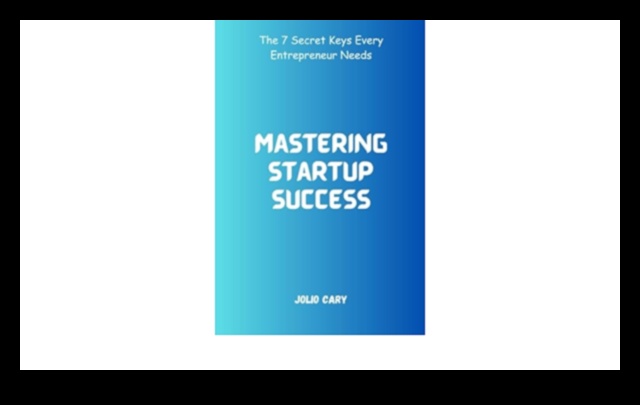
I. Introduction
II. Define your target market
III. Create a business plan
IV. Get funding
V. Choose the right legal structure
VI. Find a location
VII. Hire employees
VIII. Market your business
IX. Manage your finances
X. FAQ
People searching for “Strategies for Startup Triumph: Lessons from Successful Entrepreneurs” are likely trying to find information on how to start and grow a successful business. They may be looking for advice on how to develop a business plan, raise capital, market their product or service, or manage their finances. They may also be interested in learning from the experiences of other entrepreneurs who have successfully built their businesses.
| Topic | Answer |
|---|---|
| I. Introduction | This article provides an overview of the strategies that successful entrepreneurs have used to launch and grow their businesses. |
| II. Define your target market | The first step in starting a successful business is to define your target market. |
| III. Create a business plan | A business plan is a roadmap for your business. |
| IV. Get funding | There are a variety of ways to get funding for your business. |
| V. Choose the right legal structure | The legal structure of your business will impact its taxes, liability, and ownership. |

II. Define your target market
The first step in starting a successful business is to define your target market. This is the group of people who are most likely to buy your product or service. It is important to understand their needs, wants, and pain points in order to create a product or service that appeals to them.
There are a number of ways to define your target market. You can start by looking at your existing customer base. What are their demographics? What are their interests? What are their needs? You can also conduct market research to learn more about your potential customers. This can include surveys, focus groups, and interviews.
Once you have a good understanding of your target market, you can start to develop a marketing plan that will reach them. This plan should include a clear message about your product or service, as well as a call to action. You should also make sure that your marketing materials are aligned with your target market’s needs and wants.
Defining your target market is an essential part of starting a successful business. By understanding your customers, you can create a product or service that they will love and that will help you grow your business.
III. Create a business plan
A business plan is a roadmap for your business. It outlines your goals, strategies, and financial projections. It is an essential tool for entrepreneurs, as it helps them to stay on track and make informed decisions about their business.
A good business plan should be comprehensive and well-written. It should include the following sections:
- Executive summary
- Company description
- Market analysis
- Marketing plan
- Financial projections
- Management team
- Appendix
Writing a business plan can be a daunting task, but it is well worth the effort. A well-written business plan can help you to raise capital, attract investors, and grow your business.
IV. Get funding
There are a number of ways to get funding for your startup, including:
- Personal savings
- Friends and family
- Government grants
- Venture capital
- Crowdfunding
Each funding source has its own advantages and disadvantages, so it’s important to do your research and choose the one that’s right for you.
For more information on getting funding for your startup, check out the following resources:
- SBA’s website on small business loans
- Fundable’s article on how to get startup funding
- Investopedia’s article on how to raise money for your startup

V. Choose the right legal structure
When starting a business, it is important to choose the right legal structure. The type of legal structure you choose will have a significant impact on how your business is taxed, how you are protected from liability, and how you manage your business. There are four main types of legal structures for businesses: sole proprietorships, partnerships, corporations, and limited liability companies (LLCs).
Sole proprietorships are the simplest and least expensive type of business structure. In a sole proprietorship, the business owner is personally liable for all of the business’s debts and obligations. Partnerships are similar to sole proprietorships, except that there are two or more owners. The partners are jointly liable for all of the business’s debts and obligations. Corporations are more complex and expensive to set up than sole proprietorships or partnerships, but they offer limited liability protection for their owners. LLCs offer the same limited liability protection as corporations, but they are taxed like partnerships.
The best legal structure for your business will depend on a number of factors, including the size of your business, the number of owners, the amount of liability you want to protect yourself from, and your tax situation. If you are unsure of which legal structure is right for you, you should consult with an attorney.

VI. Find a location
When choosing a location for your startup, there are a few factors to consider. First, you need to think about your target market. Where are your customers located? You’ll want to choose a location that is convenient for them to reach.
Second, you need to consider the cost of rent. The cost of rent can vary significantly from one location to another. You’ll need to make sure that you can afford the rent for the location you choose.
Third, you need to consider the amenities that are available in the area. Do you need access to public transportation, daycare, or other amenities? You’ll want to choose a location that has the amenities you need.
Finally, you need to consider the overall vibe of the area. Do you feel comfortable in the area? Is it a place where you can see yourself working and growing your business? These are all important factors to consider when choosing a location for your startup.
VII. Hire employees
Hiring employees is a big decision that should not be taken lightly. The right employees can help your business grow and succeed, while the wrong employees can be a drain on your resources and productivity.
When hiring employees, it is important to consider the following factors:
- The skills and experience that the employee needs to have
- The personality and work ethic of the employee
- The salary and benefits that you are willing to offer
- The company culture that you want to create
Once you have considered these factors, you can start the hiring process. This process typically involves the following steps:
- Writing a job description
- Posting the job opening
- Screening candidates
- Interviewing candidates
- Making a hiring decision
Hiring employees can be a time-consuming and challenging process, but it is an important one that can have a significant impact on the success of your business.
Market your business
Once you have a product or service to sell, you need to market it to potential customers. There are many different ways to market your business, but some of the most effective methods include:
- Search engine optimization (SEO): This involves optimizing your website so that it appears higher in search engine results pages (SERPs) for relevant keywords.
- Pay-per-click (PPC) advertising: This involves paying a small fee each time someone clicks on your ad.
- Social media marketing: This involves using social media platforms to connect with potential customers and promote your products or services.
- Content marketing: This involves creating and publishing high-quality content that is relevant to your target audience.
- Email marketing: This involves sending email newsletters to your existing customers and prospects.
The best way to market your business will depend on your specific industry, target market, and budget. However, by using a combination of these methods, you can reach a wider audience and generate more leads for your business.
IX. Manage your finances
Once your startup is up and running, it’s important to manage your finances carefully. This includes tracking your income and expenses, paying your taxes on time, and managing your cash flow.
Here are some tips for managing your finances as a startup founder:
- Create a budget and stick to it. This will help you track your spending and make sure you’re not overspending.
- Track your income and expenses. This will help you see where your money is going and make sure you’re not losing money.
- Pay your taxes on time. This is important to stay in good standing with the government.
- Manage your cash flow. This means making sure you have enough money to cover your expenses and pay your employees.
By following these tips, you can help ensure that your startup is financially sound.
X. FAQ
Q: What is the best way to define my target market?
A: There is no one-size-fits-all answer to this question, as the best way to define your target market will vary depending on your business and industry. However, there are a few general tips that can help you get started:
- Identify your ideal customer. What are their demographics? What are their needs and wants? What are their pain points?
- Research your competition. Who is your competition targeting? What are their marketing strategies?
- Create a buyer persona. A buyer persona is a fictional representation of your ideal customer. It can help you to better understand your target market and develop marketing campaigns that appeal to their needs.
Q: How do I create a business plan?
A: A business plan is a roadmap for your business. It outlines your goals, strategies, and financial projections. A well-written business plan can help you to attract investors, secure loans, and get your business off the ground.
- Start by doing your research. What is the market for your product or service? What are your competitors doing? What are your financial projections?
- Write a mission statement. This is a brief statement that describes the purpose of your business.
- Develop a marketing plan. How will you reach your target market? What marketing channels will you use?
- Create a financial plan. What are your startup costs? How much revenue do you expect to generate?
Q: How can I get funding for my startup?
There are a number of ways to get funding for your startup, including:
- Personal savings
- Friends and family
- Government grants and loans
- Angel investors
- Venture capitalists
The best way to get funding for your startup will depend on your specific needs and circumstances.